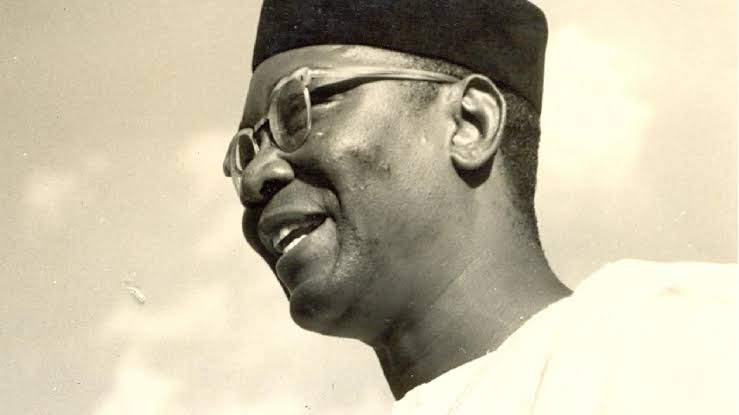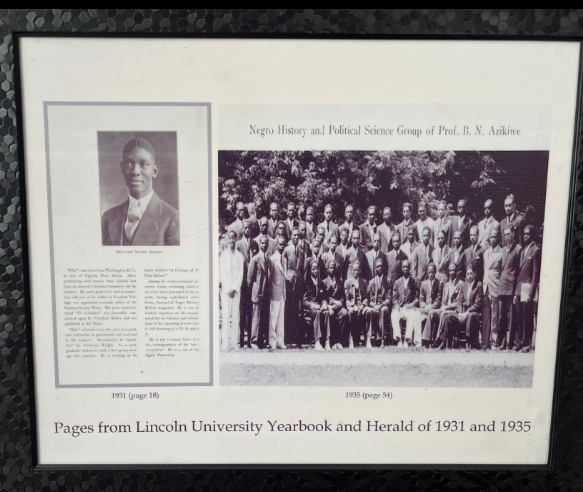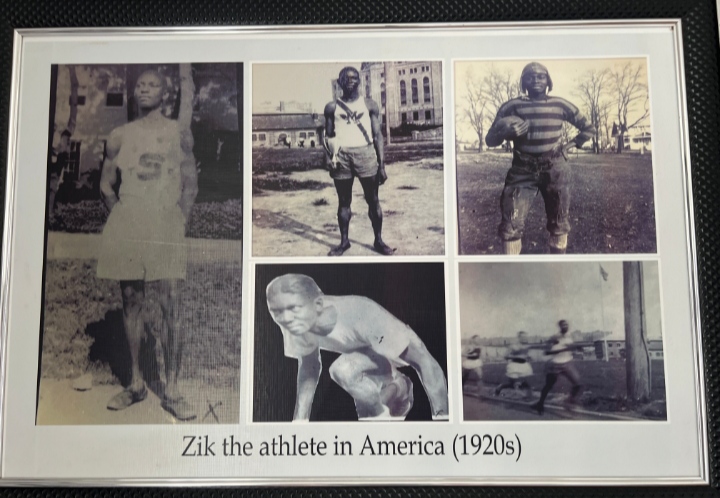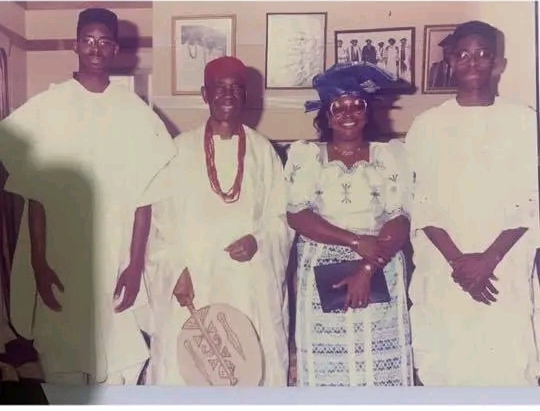Zik of Africa, Father of Nigerian Nationalism, Owelle of Onitsha
Tochukwu Precious Eze
- 10th May 2024

Nnamdi Azikiwe was born in Zungeru, in present-day Niger State, on the 16th of November 1904. His father, Obed-Edom Chukwuemeka Azikiwe, worked as a clerk in the British Administration of Nigeria, while his mother, Rachel Chinwe Azikiwe, was a princess from a royal house in Onitsha. He had one sibling, Cecilia Eziamaka Arinze. In his early years, Zik moved around Nigeria: first to Onitsha in 1912, where he attended Holy Trinity School and Christ Church School, and then to Lagos in 1914, where his father was assigned to work. Following his father's transfer to Kaduna, Zik returned to Onitsha in 1918 to complete his elementary education at CMS Central School. He briefly worked at the school as a student-teacher to help support his mother with his earnings.
During his secondary education at Hope Waddell College, Calabar, he was influenced by the teachings of Marcus Garvey. He later transferred to Methodist High School, Lagos, where he was exposed to James Aggrey's lectures on systemic change, ideas that would form the foundation of his philosophies and political beliefs. By the time he completed college, Zik was already fluent in Hausa, Igbo, and Yoruba—an impressive achievement that prepared him to serve as a national leader. He eventually pursued higher education in the United States.
In 1932, Azikiwe earned a master's degree in Religion and Philosophy from Lincoln University, and in 1933, he obtained a master's degree in Anthropology from the University of Pennsylvania. He worked as a graduate-student instructor at Lincoln University and was a doctoral candidate at Columbia University before his return to Africa. During his time in the United States, Azikiwe also wrote columns, contributing poetry and essays to the Philadelphia Tribune, the Baltimore Afro-American, and the Associated Negro Press.

Building resilience and a winning mentality through sports
Having experienced discrimination in sports due to his nationality and ethnicity, Azikiwe founded Zik's Athletic Club (ZAC), which welcomed men and women of all backgrounds and ethnicities in Nigeria. ZAC achieved notable success, winning both the Lagos League and the War Memorial Cup in 1942, and later expanded to other parts of the country. By touring Nigeria and broader Africa, promoting unity, and leading discussions on the injustices of British colonization, ZAC became a powerful platform for driving social change.

Homecoming
Upon returning to Africa, Azikiwe first took a job as editor of the African Morning Post, a daily newspaper in Ghana. He garnered significant attention through his column, "The Inside Stuff by Zik," where he advocated for pro-African nationalist agendas. In 1937, he returned to Lagos and founded the West African Pilot. The Zik Group established other newspapers across Nigeria, including the Eastern Guardian in Port Harcourt, the Southern Nigeria Defender in Warri, and the Nigerian Spokesman in Onitsha. Azikiwe's newspaper ventures served not only as business enterprises but also as platforms for advocacy.
When Nigeria gained independence in 1960, Azikiwe quickly ascended from Senate president to Governor-General. And when the Federal Republic of Nigeria was established in 1963, Nnamdi Azikiwe was named president and commander-in-chief of the armed forces, a position he held until the coup of 1966 that preceded the Biafra War.
The man behind the philosophies
Those who worked closely with Zik praised him for his humility, selflessness, and determination in the face of challenges—qualities that were crucial to his enormous success in education, sports, business, and politics. Nnamdi Azikiwe's family life was also remarkable. He was married to two women: Flora Ogoegbunam, whom he met and married in 1936– during his time in Ghana– and Uche Ewah, whom he married much later in 1973 at the age of 69.
In an interview with NZUKO, the retired academic, Prof. Uche Azikiwe, described her late husband as "loving and caring," emphasizing how much he valued unity, family meals, and time spent with his children. She noted that Zik was her biggest supporter throughout her education and career. Despite his hard work, he did not lead a flamboyant lifestyle, always taking care of others and being ready to help. It is no surprise that he was seen as a loving father not only to his seven children but also to countless others who benefited from his generosity.

After his political career, Zik spent much of his time in his office and library, writing. Following a prolonged illness, he died at the University of Nigeria Teaching Hospital in Enugu on May 11, 1996, at the age of 91. He received a state funeral, and, after nearly two weeks of national ceremonies, was taken to his final resting place in his hometown, Onitsha.